De Amerikaanse dichter en schrijver Robert Bly werd geboren op 23 december 1926 in Madison, Minnesota. Zie ook alle tags voor Robert Bly op dit blog.
Passing an Orchard by Train
Grass high under apple trees.
The bark of the trees rough and sexual
the grass growing heavy and uneven.
We cannot bear disaster like
the rocks-
swaying nakedly
in open fields.
One slight bruise and we die!
I know no one on this train.
A man comes walking down the aisle.
I want to tell him
that I forgive him that I want him
to forgive me.
Bach’s B Minor Mass
The Walgravian ancestors step inside Trinity Church.
The tenors, the horns, the sopranos, the altos
Say: “Do not be troubled. Death will come.”
The basses as they sing reach into their long coats
And give bits of dark bread to the poor, saying,
“Eat, eat, in the shadow of jethro’s garden.”
The Clarinets remind us of the old promise
That the orphans will be fed. The oboes reply,
“Oh, that promise is too wonderful for us!”
Don’t worry, my dears. The tidal wave that
Wipes out whole cities is merely the wood thrush
Lifting her wings to catch the morning sun.
We know that God gobbles up the Faithful.
The Harvesters on the sea floor are feeding
All of those ruined by the depth of the sea.
We know that people live and die. Even after
Their tree has splintered and fallen in the night, once
Dawn has come, the birds can do nothing but sing.
Watering the Horse
How strange to think of giving up all ambition!
Suddenly I see with such clear eyes
The white flake of snow
That has just fallen in the horse’s mane!
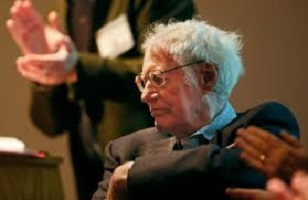
Robert Bly (Madison, 23 december 1926)
De Nederlandse dichter, schrijver en vertaler Hans Kloos werd geboren in Baarn op 23 december 1960. Zie ook alle tags voor Hans Kloos op dit blog.
Harshandig
Zwarte glans tussen groene algengroei,
oude man met duizend vingers
– geen bos of park dat mij
vroeger zijn naam geleerd heeft,
geen slang fluistert hoe ik heet.
Ik ben vandaag in de boom geklommen.
Juichend springt het kind van vier
uit het zes kleuters hoge klimrek,
de man hangt aan zijn handen,
laat zich behoedzaam vallen –
hoogtevrees komt met herinnering.
Ik ben vandaag in de boom geklommen.
In deze kroon heb ik goed zicht
op de stoet van de koningin
of een uitvaart – zaag je
uit dit soort hout een doodskist
of de planken voor een boot?
Ik ben vandaag in de boom geklommen.
Geen duif, eekhoorn, ekster te bekennen,
geen blad dat valt, dat ritselt in de wind
die niet waait in de stilte van mijn tak
die niet wordt verstoord
door het knagen van een houtwurm.
Ik ben vandaag in de boom geklommen.
Namen zijn hier achtergelaten – braille
voor de zienden – uit liefde, verveling, de lust
tot snijden, als de laatste daad
van een grijze hond die het stramme been
licht en tegen een deurpost piest.
Ik ben vandaag in de boom geklommen.
Bomen hebben geen ogen – komt daarom
dat oude bijbelverhaal naar boven gekropen,
die genezing van een blinde die zegt:
ik zie de mensen, want ik zie
hen als bomen wandelen.
Ik ben vandaag in een boom geklommen
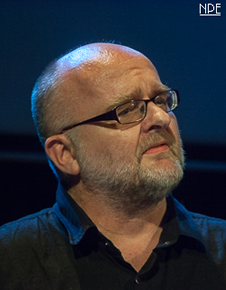
Hans Kloos (Baarn, 23 december 1960)
De Amerikaanse schrijver Norman Fitzroy Maclean werd geboren op 23 december 1902 in Clarinda, Iowa. Zie ook alle tags voor Norman Maclean op dit blog.
Uit: A River Runs Through It
“By the time he was in his early twenties he was in the big-stud poker games.
Circumstances, too, helped to widen our differences. The draft of World War I immediately left the woods short of men, so at fifteen I started working for the United States Forest Service, and for many summers afterward I worked in the woods, either with the Forest Service or in logging camps. I liked the woods and I liked work, but for a good many summers I didn’t do much fishing. Paul was too young to swing an axe or pull a saw all day, and besides, he had decided this early he had two major purposes in life: to fish and not to work, at least not allow work to interfere with fishing. In his teens, then, he got a summer job as a lifeguard at the municipal swimming pool, so in the early evenings he could go fishing and during the days he could look over girls in bathing suits and date them up for the late evenings.
When it came to choosing a profession, he became a reporter. On a Montana paper. Early, then, he had come close to realizing life’s purposes, which did not conflict in his mind from those given in answer to the first question in The Westminster Catechism.
Undoubtedly, our differences would not have seemed so great if we had not been such a close family. Painted on one side of our Sunday school wall were the words, god is love. We always assumed that these three words were spoken directly to the four of us in our family and had no reference to the world outside, which my brother and I soon discovered was full of bastards, the number increasing rapidly the farther one gets from Missoula, Montana.
We also held in common the knowledge that we were tough. This knowledge increased with age, at least until we were well into our twenties and probably longer, possibly much longer. But our differences showed even in our toughness. I was tough by being the product of tough establishments—the United States Forest Service and logging camps. Paul was tough by thinking he was tougher than any establishment. My mother and I watched horrified morning after morning while the Scottish minister tried to make his small child eat oatmeal. My father was also horrified—at first because a child of his own bowels would not eat God’s oats, and, as the days went by, because his wee child proved tougher than he was. As the minister raged, the child bowed his head over the food and folded his hands as if his father were saying grace. The child gave only one sign of his own great anger. His lips became swollen. The hotter my father got, the colder the porridge, until finally my father burned out.”
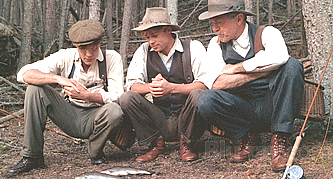
Norman Maclean (23 december 1902 – 2 augustus 1990)
Scene uit de film van Robert Redford uit 1992 met Craig Sheffer (Norman), Brad Pitt (Paul) en Tom Skerritt (Rev. Maclean)
De Engelse dichteres, schrijfster en vertaalster Sara Coleridge werd geboren op 23 december 1802 in Greta Hall, Keswick. Zie ook alle tags voor Sara Coleridge op dit blog.
The Nightingale
In April comes the Nightingale,
That sings when day’s departed;
The poets call her Philomel,
And vow she’s broken-hearted.
To them her soft, sweet, ling’ring note
Is like the sound of sorrow;
But some aver, no need hath she
The voice of grief to borrow.
No, ’tis the merry Nightingale,
Her pipe is clear and thrilling;
No anxious care, no keen regret,
Her little breast is filling.
She grieves when boys have robb’d her nest,
But so would Stork or Starling;
What mother would not weep and cry
To lose her precious darling?
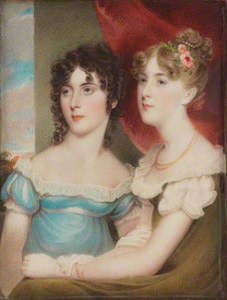
Sara Coleridge (23 december 1802 – 3 mei 1852)
Sara Coleridge en Edith May Warter door Edward Nash, 1820
De Amerikaans schrijfster Donna Tartt werd geboren in Greenwood, Mississippi, op 23 december 1963. Zie ook alle tags voor Donna Tart op dit blog.
Uit: The Goldfinch
“She was beautiful, too. That’s almost secondary; but still, she was. When she came to New York fresh from Kansas, she worked part-time as a model though she was too uneasy in front of the camera to be very good at it; whatever she had, it didn’t translate to film.
And yet she was wholly herself: a rarity. I cannot recall ever seeing another person who really resembled her. She had black hair, fair skin that freckled in summer, china-blue eyes with a lot of light in them; and in the slant of her cheekbones there was such an eccentric mixture of the tribal and the Celtic Twilight that sometimes people guessed she was Icelandic. In fact, she was half Irish, half Cherokee, from a town in Kansas near the Oklahoma border; and she liked to make me laugh by calling herself an Okie even though she was as glossy and nervy and stylish as a racehorse. That exotic character unfortunately comes out a little too stark and unforgiving in photographs—her freckles covered with makeup, her hair pulled back in a ponytail at the nape of her neck like some nobleman in The Tale of Genji—and what doesn’t come across at all is her warmth, her merry, unpredictable quality, which is what I loved about her most. It’s clear, from the stillness she emanates in pictures, how much she mistrusted the camera; she gives off a watchful, tigerish air of steeling herself against attack. But in life she wasn’t like that. She moved with a thrilling quickness, gestures sudden and light, always perched on the edge of her chair like some long elegant marsh-bird about to startle and fly away. I loved the sandalwood perfume she wore, rough and unexpected, and I loved the rustle of her starched shirt when she swooped down to kiss me on the forehead. And her laugh was enough to make you want to kick over what you were doing and follow her down the street. Wherever she went, men looked at her out of the corner of their eyes, and sometimes they used to look at her in a way that bothered me a little.
Her death was my fault. Other people have always been a little too quick to assure me that it wasn’t; and yes, only a kid, who could have known, terrible accident, rotten luck, could have happened to anyone, it’s all perfectly true and I don’t believe a word of it.“
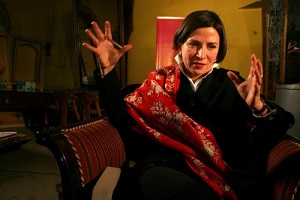
Donna Tartt (Greenwood, 23 december 1963)
De Britse schrijver Tim Fountain werd geboren op 23 december 1967 in Dewsbury, West Yorkshire. Zie ook alle tags voor Tim Fountain op dit blog.
Uit: So you want to be a playwright?
“As someone once said, there is nothing like the fear of imminent execution for concentrating the mind. Left to their own devices, most writers will prevaricate as long as possible and, when they do actually start writing, will delay the point where they show the play to others – the ‘Day of Judgement’, if you like – as long as possible. How many times have you spent months rewriting the first twenty pages of your work, despite knowing in your heart of hearts that until you reach the end you will never know whether those first twenty pages matter or are merely the backstory to the main event? How many plays hav you begun and then abandoned halfway through? How many times has a good idea drowned in the sea of your self-doubt? And how many times has jealousy eaten you up when you have seen others succeed with a story that you wanted to tell two years before but didn’t quite manage to? Well, now say to yourself out loud these words: ‘Never again.’
I am going to get you to write that play and no excuses will be accepted. You work fulltime, you have children to bringup. Tough. If you want it enough, you will find the time and space, and this book will help you. It will take you from the genesis of your idea through to the final production of your play. From deciding whether your idea is worth pursuing to spotting which producer to send your script to, or which director might be the right one to direct your work. I will try and give you ideas, spur you on, ask you the right questions at relevant points, but above all else I will try to get you to the end and to tell the story only you know.“
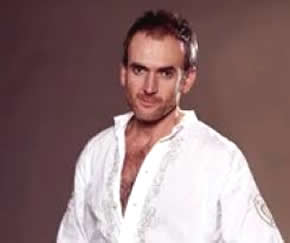
Tim Fountain (Dewsbury, 23 december 1967)
De Franse dichter, schrijver en essayist Marcelin Pleynet werd geboren op 23 december 1933 in Lyon. Zie ook alle tags voor Marcelin Pleynet op dit blog.
le jour traçait une ligne (fragment)
Je sais
chaque jour remet ses pas dans les pas du jour précédent et pourtant je peux me souvenir chaque jour est un autre jour et parce qu’il n’est pas impossible de détourner le cours d’un ruisseau chaque jour est un autre jour qui pense ce qui a été pensé et à ces mots je dis : je suis heureux de vous connaitre, de marcher avec vous.
D’Arezzo à Sansepolcro
la route passe le mur peint.
La peinture est une action habile
ce que je cherche au-delà
ouvrir le cercle de la colonne dans la vision
pliée, le souci de suivre la route
– qui aime le soleil traverse l’aube –
pour suivre ma route « il m’a toujours semblé qu’en poésie Virgile, Lucrèce, Catulle et Horace tiennent de très loin le premier rang et notamment Virgile avec ses Georgiques. »
Montaigne est passé là tout près sur un pont de pierre, où le Tibre a encore ses eaux claires et belles – et Pline bien avant lui
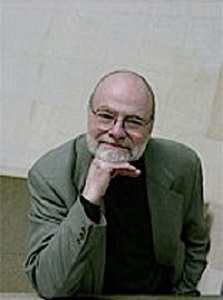
Marcelin Pleynet (Lyon, 23 december 1933)
De Nederlandse dichter-dominee Jan Jakob Lodewijk ten Kate werd geboren op 23 december 1819 in Den Haag. Zie ook alle tags voor J.J.L. ten Kate op dit blog
De vogels
De winter scheert de lustwaranden
En schudt de naakte lindentop:
De vogels slaan aan andere stranden
Het schommelende nestje op;
Maar, waar ze ook elders nederstrijken,
Vergeten doen ze ons nimmermeer –
De winter doet de vogels wijken,
De lente brengt de vogels weer.
Nu laten ons met stil verlangen
De ontvloden ballingen alleen!
Hoe vrolijk klonken eens hun zangen
Door hutten en paleizen heen!
Ginds, waar de vreemde bloemen prijken,
Klinkt nu hun feestlied heinde en veer:
De winter doet de vogels wijken,
De lente brengt de vogels weer.
Wij, aan dit logge stof gekluisterd,
Benijden haast hun vrije vlucht.
De glans van ’t zonlicht is verduisterd,
De nevels rijden door de lucht:
0, wie de vogel mocht gelijken,
En ijlen naar een warmer sfeer! …
De winter doet de vogels wijken,
De lente brengt de vogels weer.
Zij denken aan hun verre vrinden;
En wijkt in ’t end de laatste orkaan,
Dan zoeken zij hunne oude linden,
Die weer in volle bloesems staan.
Zij zijn voor armen en voor rijken
Geluksprofeten van de Heer…
De winter doet de vogels wijken,
De lente brengt de vogels weer.
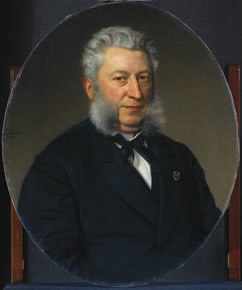
J.J.L. ten Kate (23 december 1819 – 24 december 1889)
Anoniem portret in Rijksmuseum, ca. 1870
De Italiaanse schrijver Giuseppe Tomasi di Lampedusa werd geboren in Palermo op 23 december 1896. Zie ook alle tags voor Giuseppe Tomasi di Lampedusa op dit blog.
Uit: The Leopard (Vertaald door Archibald Colquhoun)
‘I, Excellency, voted “no”. “No”, a hundred times “no”. I know what you told me: necessity, unity, expediency. You may be right; I know nothing of politics. Such things I leave to others. But Ciccio Tumeo is honest, poor though he may be, with his trousers in holes’ (and he slapped the carefully mended patches on the buttocks of his shooting breeches) ‘and I don’t forget favours done me! Those swines in the Town Hall just swallowed up my opinion, chewed it and then spat it out transformed as they wanted. I said black and they made me say white. The one time when I could say what I thought that bloodsucker Sedara went and annulled it, behaved as if I’d never existed, as If I never meant a thing, me, Francesco Tumeo La Manna son of the late Leonardo, organist of the Mother Church at Donnafugata, a better man than he is! To think I’d even dedicated to him a mazurka composed by me at the birth of that…’ (he bit a finger to rein himself in) ’that mincing daughter of his!’
At this point calm descended on Don Fabrizio, who had finally solved the enigma; now he knew who had been killed at Donnafugata, at a hundred other places, in the course of that night of dirty wind: a new-born babe: good faith; just the very child who should have been cared for most, whose strengthening would have justified all the silly vandalisms. Don Ciccio’s negative vote, fifty similar votes at Donnafugata, a hundred thousand ‘no’s’ in the whole Kingdom, would have had no effect on the result, have made it, in fact, if anything more significant; and this maiming of souls would have been avoided. Six months before they used to hear a rough despotic voice saying: ‘Do what I say or you’re for it!’ Now there was already an impression of such a threat being replaced by a money-lender’s soapy tones: ‘But you signed it yourself, didn’t you? Can’t you see? It’s quite clear. You must do as we say, for here are the IOU’s; your will is identical with mine.”
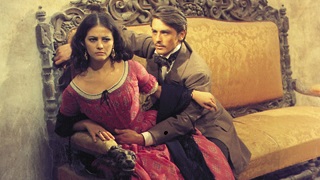
Giuseppe Tomasi di Lampedusa (23 december 1896 – 23 juli 1957)
Claudia Cardinale en Alain Delon in de gelijknamige film van Luchino Visconti, 1963
Zie voor nog meer schrijvers van de 23e december ook mijn blog van 23 december 2012 deel 2 en eveneens eveneens deel 3.
